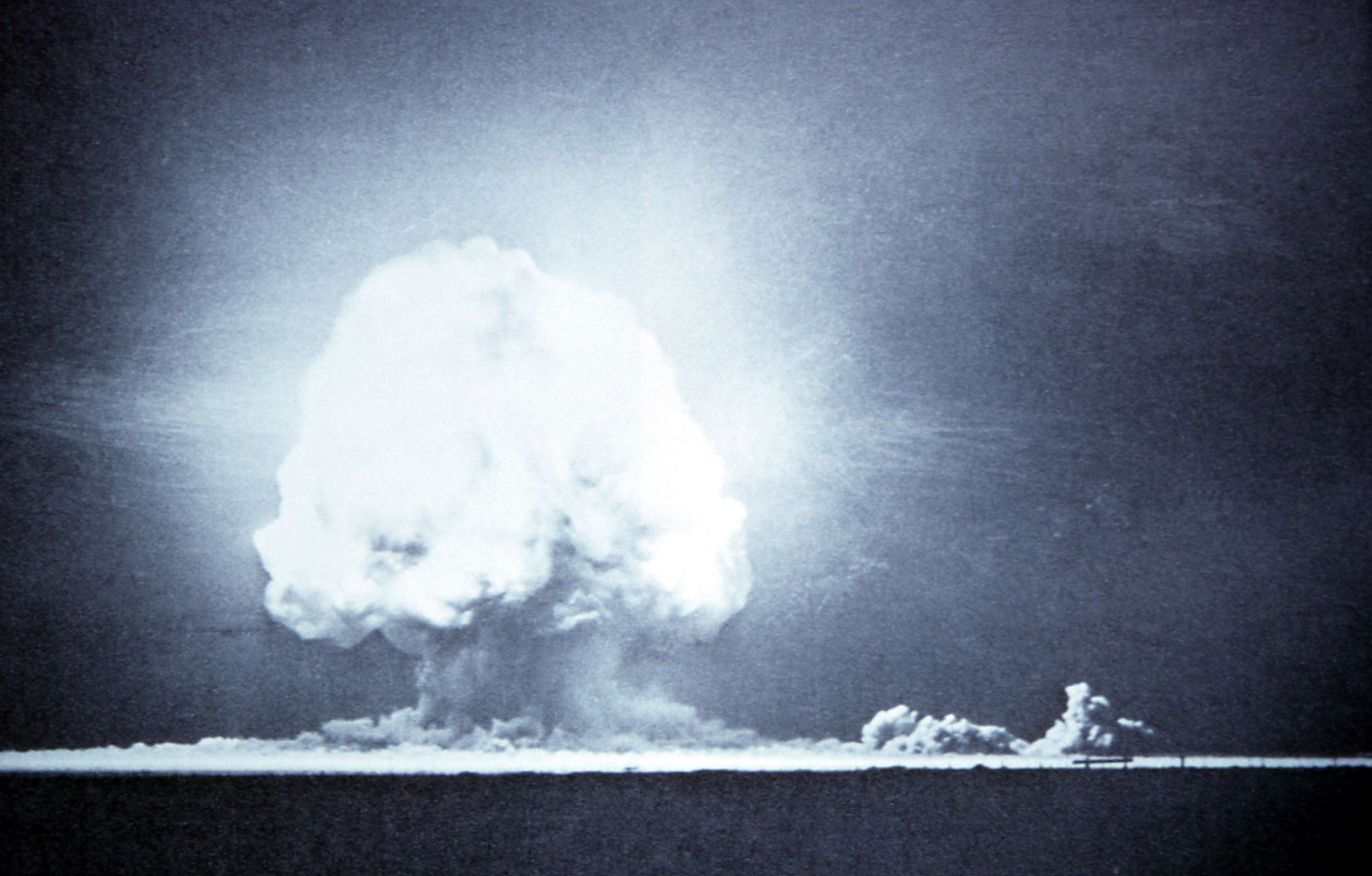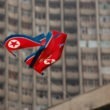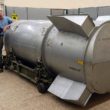Seventy years ago today, on July 16, 1945, the first atomic bomb was detonated at the Alamogordo Bombing and Gunnery Range in New Mexico–known from that day in 1945 as the “Trinity Site.”
Trinity was the code name for the first detonation, chosen by J. Robert Oppenheimer, the technical director of the Manhattan Project that developed the bomb. Oppenheimer took the name from a poem by John Donne, the British poet and cleric who lived from 1572 until 1631.
No rationality has thus far stopped the development of nuclear weapons or nuclear power plants. And no morality has protected human beings from exposure.
“The Trinity” is the fourth poem in John Donne’s Divine Poems, A Litany.
It is preceded by “The Father, The Son, and The Holy Ghost.” “Trinity”’s first line is: “O, Blessed Glorious Trinity.”
The fifth divine poem in Donne’s litany is “The Virgin Mary,” which begins with: “For that fair blessed mother-maid.”
That fair blessed mother maid? I think, what mother would have agreed to develop a bomb so powerful it could wipe out civilization?
Son? Perhaps the alternative spelling “Sun,” as suggested in the poetic title of Robert Jungk’s history of the atomic scientists: Brighter Than a Thousand Suns.
Holy Ghost? The holy ghosts of humans, animals, birds, sea life, insects and plants, damaged by nuclear activities?
General Leslie Groves, in charge of the Trinity Site, witnessed first-hand the horrific damage caused by the bomb detonated in Nevada. Then he issued orders to drop two on Japan.
“Little Boy,” a uranium bomb, was dropped on Hiroshima on August 6, 1945. Three days later, “Fat Man,” a plutonium bomb, was detonated over Nagasaki.
Oppenheimer later recalled that the explosion had reminded him of a line from the Hindu holy text, the Bhagavad Gita: “Now I am become Death, the destroyer of worlds.”
The terrifying destructive power of atomic weapons and the unleashed atom haunted some of the Manhattan Project scientists for the remainder of their lives.
Yet no rationality has thus far stopped the development of nuclear weapons or nuclear power plants.
And no morality has protected human beings from exposure. Confronted by radioactive fallout in Nevada, our government outsourced its weapons testing to the Bikini Atoll, a dot on the map of the Pacific Ocean, and other sites in the Marshall Islands, where residents still suffer adverse effects from bomb testing that began in 1954.
Servicemen, workers, and ships were exposed to the tests.
Many of the ships used in the tests in the Pacific were sailed or towed to Hunters Point Naval Shipyard in San Francisco, to be decontaminated. The Naval Radiation Defense Laboratory was established in 1945 and continued until 1969.
I worked at the Defense Laboratory in the 1950s, as a biologist testing animals that were exposed to thermal burns and radiation. Unsurprisingly, Hunters Point has been found to be contaminated by asbestos, chemicals—and radioactivity.
Today, the nuclear power industry that began with Dwight Eisenhower’s Atoms for Peace program produces electricity at great risk. We have documentation of animal deaths after the 1979 near melt-down of the Three Mile Island Generating Station in Pennsylvania; of massive contamination after the Chernobyl Power Plant explosion in 1986; and more recently, scientific proof of the ongoing world-wide contamination from the Fukushima Daiichi nuclear plant in Japan, where emergency backup systems failed to prevent partial meltdown damage in three reactors flooded by a tsunami in 2011.
Is there an advantage to owning nuclear weapons–or for that matter operating power plants?
Ninety-nine licensed nuclear power plants operating in the U.S. today are 99 potential Three Mile Islands.
The 4,760 nuclear warheads in the U.S. arsenal are 4,760 potential destroyers of worlds.
—Janette D. Sherman, M.D.
July 16, 2015
Janette Sherman is a physician and author, specializing in toxicology and chemical—and radiation-related illnesses.





